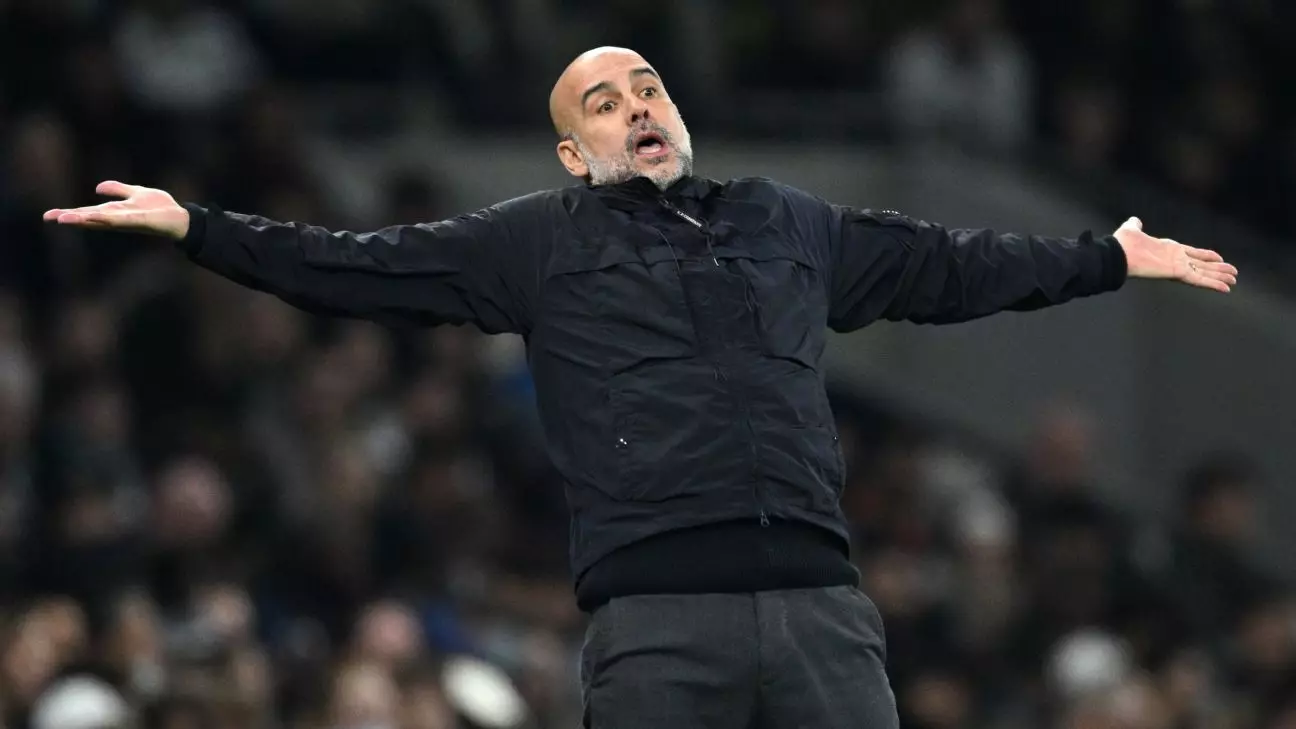In the world of elite football, the depth of a squad is often testing ground for a manager, especially in the face of mounting injuries. Manchester City’s head coach, Pep Guardiola, finds himself grappling with significant challenges as several key players have succumbed to injuries. Following their recent Carabao Cup loss to Tottenham Hotspur, Guardiola confirmed the dire state of his squad. The news that player Savinho suffered an emotional injury during the game only compounded the woes, while defender Manuel Akanji faced a setback warming up. This unfortunate series of events highlights a growing crisis that Guardiola must navigate carefully.
The injury list for City reads like a who’s who of football talent. With Ballon d’Or winner Rodri ruled out for the remainder of the season due to a devastating anterior cruciate ligament tear, the situation appeared grim. Kevin De Bruyne has yet to make an appearance post his injury during the Champions League clash against Inter Milan, and several other star players including Jack Grealish, Kyle Walker, and Jérémy Doku have already been sidelined. Moreover, it was revealed that Rúben Dias has been competing despite ongoing issues. Such a litany of injuries not only affects the team’s performance but also places immense pressure on Guardiola as he strategizes for upcoming matches.
In light of the injury crisis, Guardiola has signaled a shift towards relying on the club’s academy talent. His comments made it clear: “We are using them because we are in an emergency in certain positions.” This highlights a pivotal opportunity for young players to assert their talents and prove their worth on a grand stage. Given that the team’s situation has left little room for error, the academy’s resources are not just a backup but rather a necessary extension of the squad. Guardiola noted that trust in these emerging talents remains steadfast, echoing a similar sentiment from prior seasons when youth players made vital contributions.
As City approaches matches against Bournemouth and a crucial fixture against Sporting CP on the horizon, Guardiola has to manage expectations both internally and externally. The presence of injuries limits tactical flexibility, creating a blend of unpredictability and pressure. Guardiola acknowledged the peculiarities of modern football: “It happens in many clubs and we’re not the only club in the world to be going through it.” His pragmatic approach to the situation emphasizes resilience, as he eyes potential recoveries in the squad post-international break.
With January approaching, speculation looms about whether the current injury crisis may compel City to seek reinforcements in the transfer market. Guardiola chose to remain non-committal, suggesting a wait-and-see attitude regarding the returns of injured players. “Maybe in January we will have all the players back, except Rodri,” he stated, casting doubts on immediate transfer needs. This nuanced approach reflects a belief in his current squad’s capabilities when fully fit and available, illustrating the managerial confidence Guardiola holds, even in low moments.
As Manchester City faces an uphill battle against injuries, Pep Guardiola’s strategy reflects both adaptability and an unwavering faith in the club’s youth setup. The exploitation of academy talent during challenging times has the potential to boost morale and yield impressive performances. As the squad navigates these precarious waters, the coming weeks will serve as a litmus test for both the resilience of Guardiola’s management style and the capability of its younger players to step into the spotlight. The footballing world watches closely, anticipating how City will rise above adversity and strategize for their road ahead.

